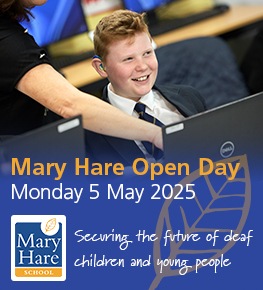Frequently Asked Questions
We receive many questions about all aspects of BATOD and the education of deaf children. Here are some of the most frequently asked questions with responses. We are now updating this page with specific questions related to the impact of the coronavirus.
Please note that BATOD does not provide legal advice; we advise that you seek any such advice where necessary from your union and/or employer. BATOD is not a union. Any suggestions that we do make on any issue related to the impact of the coronavirus is BATOD’s interpretation, and that of some of its members, and is provided to help you make your own decisions rather than making such decisions for you.
BATOD is the sole professional association for Teacher of Deaf Children and Young People (ToDs) and provides a voice for the profession at the heart of governments across the UK including the DfE, Ofqual and a variety of other organisations such as the NDCS, NatSIP and Scottish Sensory Centre. In addition to two highly respected publications – the Association Magazine which appears four times a year and a quarterly academic Journal, Deafness and Education International, BATOD is involved in a huge range of activities designed to support Teacher of Deaf Children and Young People and promote excellence in the education of deaf children and young people. Apart from representing the profession in a range of contexts and responding to enquiries from Teacher of Deaf Children and Young People, parents and members of the public, the association produces materials, resources and publications in furtherance of our principal aims.
BATOD puts on conferences and courses both regionally and nationally and often publishes lectures and workshop content in our Magazine and on the website. Teacher of Deaf Children and Young People meet each other through BATOD’s regional and nation groups, and special interest groups.
The BATOD website is increasingly becoming the first stop for many people within the profession and beyond – the Jobs section (https://www.batod.org.uk/jobs/) and the news and blog page (https://www.batod.org.uk/blog/) are frequently visited and keep the profession up to date with what BATOD is doing and what is happening in the wider world of the education of deaf children.
The Association is a ‘not for profit’ organisation and membership fees fund the great majority of the work of BATOD so that the more ToDs belong to BATOD the more work can be done on their behalf. Supporting BATOD means supporting yourself as well as your colleagues.
When BATOD speaks, it speaks with the voice of the Teacher of Deaf Children and Young People throughout the UK – over two thirds of them are members (membership is for individuals only – we do not have institutional members). It is essential that we represent the whole profession and to be able to do so it is vital that individual Teacher of Deaf Children and Young People join and participate.
If you have any questions or concerns, please don’t hesitate to contact the National Executive Officer, Teresa Quail at [email protected].
Steph Halder, the BATOD President, has made a statement about the impact of the coronavirus on the work of Qualified Teachers of Deaf Children and Young People.
You can read it here.
The UK Assistive Listening Technology Working Group and BATOD have published a useful document which summarises care and maintenance of equipment, including radio aids, but signposts to manufacturers and other websites for the latest information.
We are grateful to BATOD members and our professional peers for the resources and/or signposting to resources to support parents and colleagues during the unique period which can be found here on our website.
BATOD has established a CPD dashboard section on our website which allows members to track their own development against the competencies of the training of Teachers of Deaf Children and Young People. The Events page also contains information about CPD events provided by BATOD region and nation groups and other organisations.
One of the most frequently asked questions requests help with dissertations and assignments. More and more students, teachers and other professionals approach BATOD asking for help with a variety of academic and other assignments.
Here are some suggestions as to where you might find the answers to many of these enquiries:
The BATOD website itself is a mine of information. Use the search engine which can be found on the home (and every other) page
On the website BATOD members can browse through the indices of recent BATOD Association Magazines. This is to be found here. Magazines going back to 1999 are available there.
Birmingham University Education library (the BATOD archive is housed within the University) has a collection of all our Magazines and Journals – The Action on Hearing Loss library also has a similar collection.
The NDCS has produced some useful publications which may support your work. Its ‘Supporting the achievement of deaf children’ resources aim to support education professionals working in early year settings, primary schools, secondary schools and further education. The resources set out simple tips to ensure effective inclusion so that deaf children or children identified as having a ‘hearing impairment’ can achieve their potential. You can access these resources here.
There are many books about deaf education and related issues but several in particular have been useful to colleagues over the years. They are:
- Marschark,M., Lampropolou V and Skordillis, E (2016) Diversity in Deaf Education Oxford University Press, USA
- Knoors H and Marschark M (2014) Teaching Deaf Learners Oxford University Press, USA
- Marschark, M. and Knoors, H. (2012) Educating Deaf Children:Language, Cognition and Learning. Deafness and Education International. 14(3), pp.136-160.
- Marschark, M., and Spencer, P. E. (2010) Evidence Based Practice in Educating Deaf and hard of hearing students Oxford University Press
- Marschark, M., and Spencer, P. E. (2010) The Oxford handbook of deaf studies, language, and education (Vol. 1 & 2) Oxford University Press
- Nunes, T.(2004) Teaching mathematics to deaf children London: Whurr
- Watson et al. (1999) Deaf and hearing-impaired pupils in mainstream schools David Fulton
- Wood, D. et al. (1986) Teaching and talking with deaf children Chichester: Wiley
Please let us know about any other publications which have proved especially useful.
This is certainly one of the most Frequently Asked Questions. We have webpage links which sets out all the information you need. You can find it on this website at Training as a Teacher of the Deaf.The key point which you need to remember is that in order to train as a Qualified Teacher of Deaf Children and Young People you must have Qualified Teacher Status. We do not offer specific advice on this as there are often many personal circumstances to be taken into account. Therefore you need to visit the DfE’s Get Into Teaching website to find out more.
BATOD is mainly concerned with Qualified Teacher of Deaf Children and Young People . However, there are many other careers involving working with deaf children. Information about these can be found by visiting the website of the National Deaf Children’s Society and searching for ‘careers with deaf children’; Action on Hearing Loss has produced a useful leaflet entitled “Careers supporting people who are deaf”
The BATOD membership subscription can be claimed against income tax. Information about subscription rates in previous years can be found here.
We are sometimes asked to provide financial support to teachers who have experienced difficulties finding the funding they need to undertake their training as a Teacher of Deaf Children and Young People (ToDs) or for other purposes. It is a legal requirement for employers to fund this training as it is a mandatory qualification. Unfortunately, BATOD as a small voluntary not-for-profit professional association does not have any funds at all to provide this kind of support.
However, we work closely with the Ovingdean Hall Trust which awards up to five Con Powell Scholarships a year to aspiring QToDs who are not working with deaf children and young people already. More information is available here.
Some of the course providers have details of bursary options for QToDs.
You can obtain electronic copies of recent BATOD Magazines if you are a member. You can browse the contents of these magazines by consulting the Association Magazine section on this website.
Birmingham University Education Library, The Action on Hearing Loss Library and also the National Library hold copies of all our publications. The National Library keeps such publications on microfiche so it is possible you could get a whole copy.
For issues of the Journal, details are on the Journal page of this website.
You can browse the contents of all the BATOD Association magazines since 1999 .
If you need even more information go to the FAQ about writing a dissertation.
There is usually no problem with this as long as the source is very clearly acknowledged. However, please contact [email protected].
You can find out the answer to this and many other questions about deaf children including where they are educated and through which communication and language approach by consulting the section of this website devoted to the CRIDE survey.
You can find out the answer to this and other questions about access to signing classes by consulting the section of this website entitled access to signing classes.
BATOD’s privacy and GDPR policies can be found here: https://www.batod.org.uk/privacy-policy/
Members often approach us expressing concern about their Local Authority’s intention to move them on to the Soulbury scale and away from Teachers’ Pay and Conditions. We have discussed this issue with trade unions and professional bodies and, for example, the NEU, has clearly stated that it is their view that if a teacher is carrying out any of the duties of a teacher for any part of the week – as opposed to offering advice without directly teaching children – then it is not lawful to force the change. The fact that this teaching may not be full-time is not relevant.
Colleagues can of course agree to such a change but need to be aware that there are considerable implications for retirement age, pension, hours of work, holiday entitlement and other aspects of pay and conditions which they should explore. As in all such cases we encourage members to belong to and consult a national trade union or professional body for teachers.
It should be noted too that BATOD usually makes an annual contribution to the national Review of Teachers’ Pay and Conditions (https://www.batod.org.uk/information/submissions-and-responses-to-the-strb/) and the Association’s contributions are often quoted and taken into account.
Teresa Quail, BATOD National Executive Officer
Last updated October 2024




